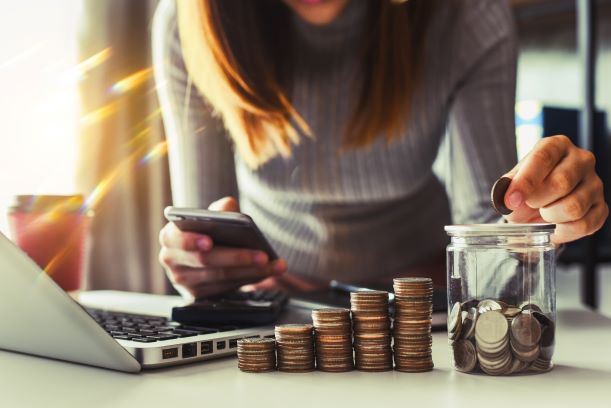The COVID-19 pandemic has affected many of us financially, with many people earning less money than they are used to thanks to job losses and the furl
The COVID-19 pandemic has affected many of us financially, with many people earning less money than they are used to thanks to job losses and the furlough scheme. Others who were not eligible for the furlough scheme at the beginning of lockdown have found themselves reliant on Universal Credit during the pandemic or working in a job that pays less than they were used to. Others have been luckier, including those who were able to continue working from home as normal, or ran a business that experienced high demand during these uncertain times. If you are lucky enough to still have the disposable income to put towards savings during a pandemic, how much should you be looking to save?
Work Out Your Income and Expenses
The first place to start when deciding how much to save is to work out your budget. Do this by looking at your income and then adding up all of your regular monthly expenses to figure out how much you have left to save. Consider any non-essential expenses that you might spend each month like buying a new item of clothing, beauty treatments or eating out so that you can get a clearer picture of how much you have spare to save.
Cut Down Expenses
If you want to put more emergency money away during the pandemic, start by looking at any expenses that you might be able to reduce or even eliminate. For example, if you pay a gym membership but started working out at home more during the lockdown, it might be worth cancelling and saving the money instead. Use comparison sites to see if there is the option to get a cheaper deal on essential utilities like gas and electric, TV and broadband. If you watch Netflix and YouTube rather than live TV, you can declare that you do not need a TV license and save that money instead.
Save First and Choose the Right Account
Once you have figured out an amount that you would like to save each month, it’s a good idea to put this aside first before you spend any other money, to make it easier to budget with and manage the amount that you have left – and help you avoid dipping into your savings. To make it easier to save, you might want to consider opening an ISA where you can save and invest up to £20,000 per year tax-free. With a Stocks and Shares ISA account from Willis Owen, for example, you don’t have to pay any income or capital gains on any money your investments make. Willis Owen has a range of investment options and ISA accounts to choose from, so it’s worth doing your research.
Consider Micro-Saving
Alongside the set amount that you decide to save each month when you get paid, micro-saving is a good way to add even more money to your savings account. Rounding up the pennies is a good way to save a little bit that will add up every time you spend. Another option to consider is bank account skimming, where you log in to online banking on a regular basis and round your account balance down to the nearest five or ten and put the pounds and pennies in your savings account. Although you’re only saving a small amount at a time, you’ll be surprised at how quickly it can all add up.
Be Flexible
During a pandemic, the last thing that you want is to not have access to your savings if you need them. While some jobs are guaranteed right now, many are not, leaving a lot of people across the country worried about their future income. If you were to be made redundant because of COVID-19, your savings won’t be any good to you if they are locked away until next year. So, be smart when it comes to choosing a savings account – opt for one that allows you to quickly and easily access your money if you need it in an emergency.
Consider a Side Hustle
If you’re currently working but would benefit from some extra income on the side, there are many side hustle ideas that will help you earn some extra cash, even in a pandemic. You may also be able to take on gigs or freelance work if you are currently furloughed to supplement your income. Freelance online work such as content creation, web design, admin work, and social media management is easier to come by thanks to sites like Fiverr. If you have a car or bike, you could make some extra cash for delivering food in your local area.
No matter whether your income has been increased, reduced or stayed the same during the pandemic, it’s always a wise idea to save money wherever you can. With many people concerned about the future during these uncertain times, committing to saving some money each month can provide you with extra peace of mind.



















































































































COMMENTS